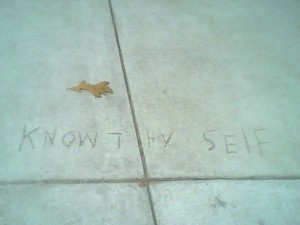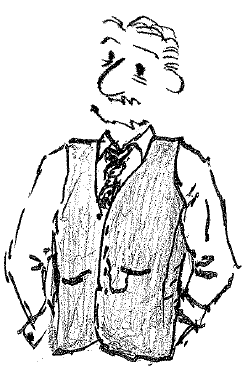Dear Giedra,
Thank you for your question.
If you are considering acquiring a philosopher, there are many things you should know first, and many things to consider.
 Over the twenty five centuries they have been around, many different breeds–perhaps hundreds–have developed. Some are bred for hunting, some for fighting, others, especially in the academy, are quite domesticated. Others have gone feral, and can be found roaming freely in bookstores & coffee shops (or, in my case, both). Some archaic breeds still flourish, some are virtually extinct. I can’t remember the last time I saw a wire-haired Leibnizian, but Spinozists seem to resurface every few years. There don’t seem to be many pedigreed Hegelians anymore, but many of the popular 20th Century breeds had some Hegelian blood.
Over the twenty five centuries they have been around, many different breeds–perhaps hundreds–have developed. Some are bred for hunting, some for fighting, others, especially in the academy, are quite domesticated. Others have gone feral, and can be found roaming freely in bookstores & coffee shops (or, in my case, both). Some archaic breeds still flourish, some are virtually extinct. I can’t remember the last time I saw a wire-haired Leibnizian, but Spinozists seem to resurface every few years. There don’t seem to be many pedigreed Hegelians anymore, but many of the popular 20th Century breeds had some Hegelian blood.
Some philosophers are witty and urbane, sophisticated and conversational, fluent in several languages and capable of stylish dress, able to speak knowledgeably about art, literature, poetry, history and pop culture, interested in fine food and sparkling conversation, or, on the other hand, they can be analytic.
Either way, a word of caution: if they start using really long, confusing words like “equiprimordial,” “temporality,” “transcendental,” or “Being,” hit them on the nose with a rolled up newspaper. This sort of behavior may seem minor or even cute at first, but trust me: in the long term it must be stopped.
The charm of having a philosopher is their strange relationship to the world of ideas. Remember how in a fairy tale everything–even the very air–is charged through and through with magic? For your philosopher, everything–even time and space (OK, maybe especially time and space)–is charged through with ideas. Ideas animate the world, hold it together to allow us to make sense of it, and allow us to reassemble it to see that might be, and sometimes even what should be.
Philosophers are generally interested in, fascinated by, even obsessed with patterns and connections. What sort of connections or patterns are there in the universe? In being itself, or just in the way we perceive or conceive our world? How about the connection that links statements about the world in such a way that if the statement “if this, then that” (or A → B) is true, and if “this” (A) is true, then “that” (B) is true, or why it is that if all men are mortal and Socrates is a man, then Socrates is mortal.
An important detail which you will notice is that your philosopher will pay a lot of attention to logic. More than anything else, folks assume that philosophers spend a lot of time in vague bleary abstraction, and that isn’t the case. The core, the very heart of Philosophy is logic, and proof is really as important to the writing of philosophy as anything. This is one of the reasons why learning about the “History of Ideas” is so misleading: it is all summary of the conclusions, whereas Philosophy is really much more about the path to the conclusions than about the product. There are also clear standards and procedures. The philosopher’s goal is to spend time in precise bleary abstraction. Precision, logic and clarity are to philosophy what living a sinless life is to Christianity: very important and generally ignored.
 Another important detail is that your philosopher probably will not take a great deal of interest in details or specifics. Individual things are only interesting in what they reveal about a class of things as a whole, or about the categories of things into which a philosopher seeks to divide the world. The underlying connections or substance, the huge patterns, the universals are of interest to them, the particulars are only a tool to get to what is true of all things. Specifics are for the sciences.
Another important detail is that your philosopher probably will not take a great deal of interest in details or specifics. Individual things are only interesting in what they reveal about a class of things as a whole, or about the categories of things into which a philosopher seeks to divide the world. The underlying connections or substance, the huge patterns, the universals are of interest to them, the particulars are only a tool to get to what is true of all things. Specifics are for the sciences.
In general, an easy thing about philosophers–if  they are house-broken–is that they won’t bother you with pesky demands for attention, or to be walked or groomed or have a ball thrown for them. If you can provide them with a steady supply of books, they will generally manage to entertain themselves.
they are house-broken–is that they won’t bother you with pesky demands for attention, or to be walked or groomed or have a ball thrown for them. If you can provide them with a steady supply of books, they will generally manage to entertain themselves.
One final word: many question why, in this sophisticated age of Farmville and Furbys, and tablets that can deliver information or entertainment (or that terrible gorgon which is their mutant offspring, “info-tainment’–trust me, I am not infotained!) instantly, why should we still have philosophers. My reply that they are mostly harmless, but still serve an important function: to question and argue, and–if they are good philosophers–make us question and argue. Yes, 2000 later folks are still arguing over what Jesus said, and talking about Julius Caesar, but 2500 years later, folks are still arguing with Socrates, still engaged in the same endeavor–systematic wonder–with which Sophia–Wisdom–first captivated him. 
Yours, affectionately,
Dr. Bear.
